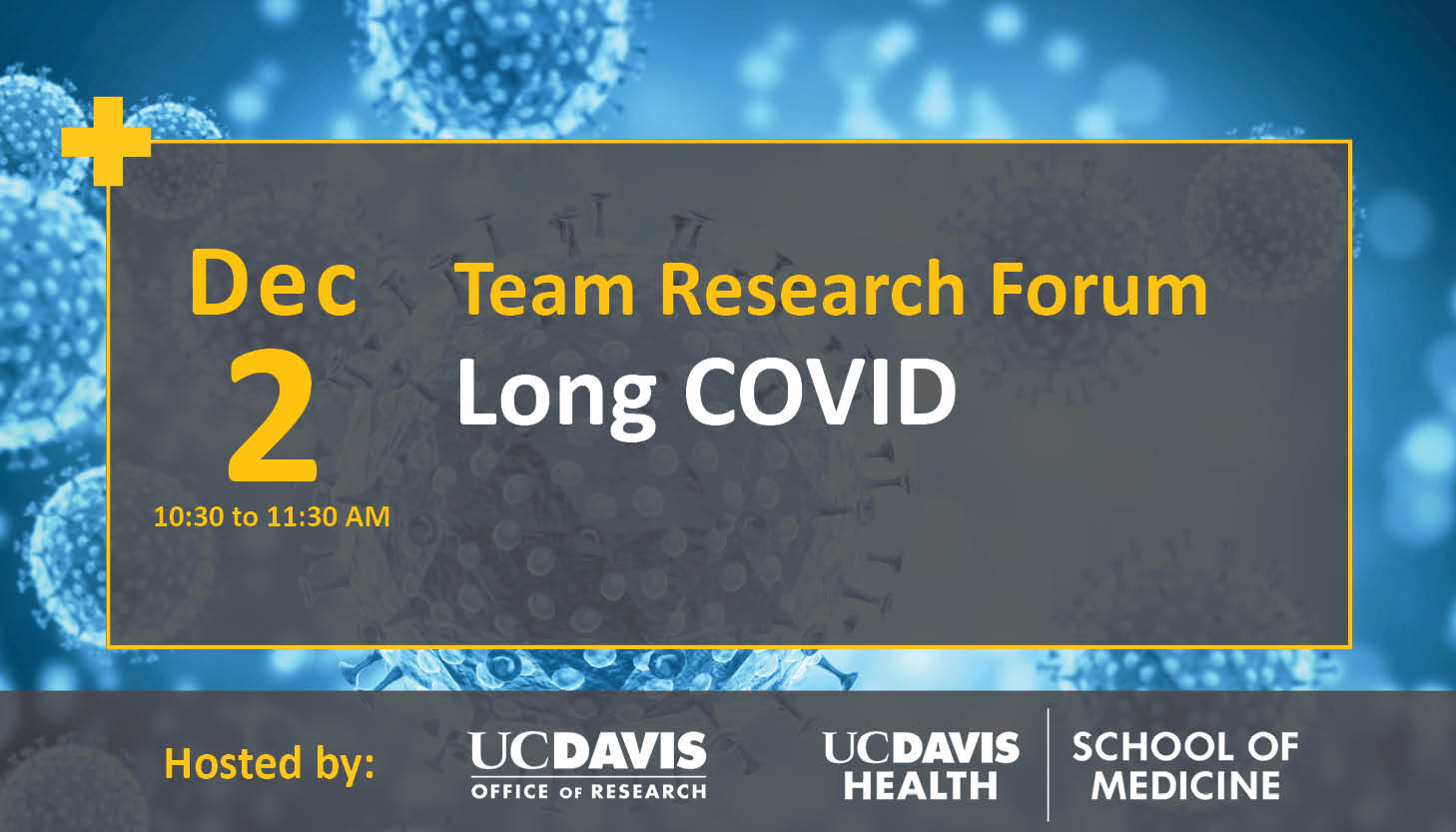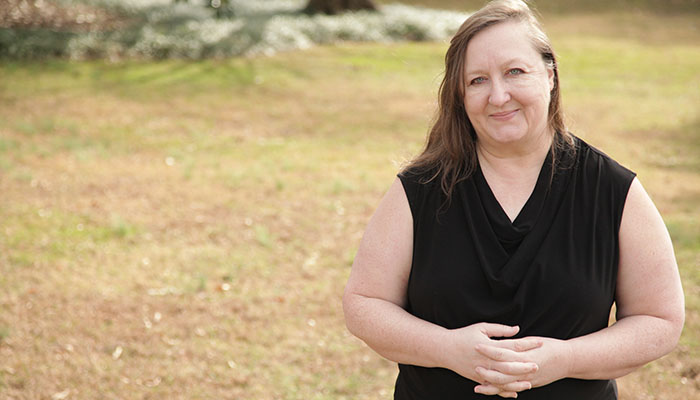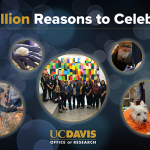Team Research Forum: Long COVID
Update on Long COVID Research at UC Davis
Join the UC Davis Office of Research and the UC Davis School of Medicine at 10:30am on Friday, December 2, for an update and discussion about Long COVID research at UC Davis. UC Davis researchers will present their current work in this area, including:
- “The microbiota gut-brain axis in long-COVID,” a study on the relationship between GI and cognitive symptoms of long COVID.
- “Establishing an in vivo model of PASC in a novel genetically-humanized polygenic mouse,” a project developing an in vivo model to observe and measure post-COVID organ damage.
- “The Microbiome and Proteome of the Olfactory Cleft in Acute and Long-COVID Olfactory Dysfunction,” looking at the potential microbiome causes of long COVID-related loss of sense of smell.
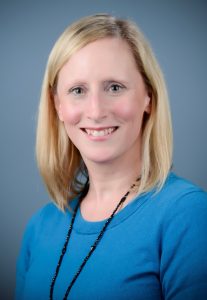
Melanie Gareau
Associate Professor, UC Davis School of Veterinary Medicine
Melanie Gareau, Ph.D. is an associate professor in the department of anatomy, physiology and cell biology in the School of Veterinary Medicine at UC Davis. Her research lab is focused on characterizing the development of the microbiota-gut-brain (MGB) axis and the impacts of neonatal dysbiosis on behavior and cognition in mice. Her lab has identified that early life disturbances, such as stress, bacterial infection, antibiotic administration, or exposure to a colitogenic agent, can cause long-lasting impairments in mood and cognitive function. These deficits in the MGB axis can be prevented in part by beneficially modulating the gut microbiota with administration of probiotics or beneficial short-chain fatty acids.
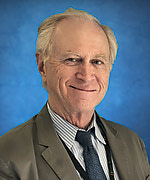
Kent Lloyd
Professor of Surgery, UC Davis School of Medicine
Director, Mouse Biology Program
Associate Director of Shared Resources, Comprehensive Cancer Center
Dr. Kent Lloyd is a veterinarian, research physiologist, and mutant mouse biologist. He is currently a professor of surgery in the UC Davis School of Medicine, director of the Mouse Biology Program and Associate Director of Shared Resources for the Comprehensive Cancer Center. Dr. Lloyd is a fellow of the American Association for the Advancement of Science, and his NIH-funded research focuses on understanding the in vivo function of genes and genetic elements and translating discoveries to improvements in human and animal health. He uses gene targeting and editing (CRISPR/Cas9) technologies to create and analyze genetic variants in mouse models. This work is essential for the evolution of precision medicine as a new paradigm in clinical decision-making and health care.
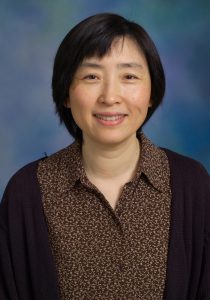
Qizhi Gong
Professor, UC Davis School of Medicine
Dr. Qizhi Gong is a professor in the department of Cell Biology and Human Anatomy in the UC Davis School of Medicine. Her research combines mouse genetics, cell and molecular biology and genomic approaches to investigate molecular mechanisms of olfactory mucosa-pathogen interactions, olfactory sensory neuron functions and olfactory connectivity. Genomic analyses in Dr. Gong’s lab uncovered that common pathways are utilized in neurodevelopment plasticity in adult and pathogenesis in human diseases. Her lab is currently investigating SARS-CoV-2-olfactory neuroepithelium interactions to determine the mechanism of COVID-19 associated olfactory dysfunction.
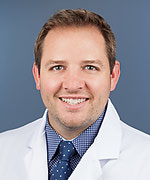
Toby Steele
Assistant Professor, UC Davis School of Medicine
Dr. Toby Steele is an associate professor in the Department of Otolaryngology in the UC Davis School of Medicine, specializing in rhinology and sinus and skull base surgery. His research is focused on evaluating and improving both medical and surgical therapies for patients with sinonasal disorders , which include chronic rhinosinusitis, sellar/parasellar pathology, sinonasal malignancy, nasal obstruction, epiphora, thyroid eye disease, olfactory disturbances and cerebrosphinal fluid rhinorrhea.
Latest News & Events

